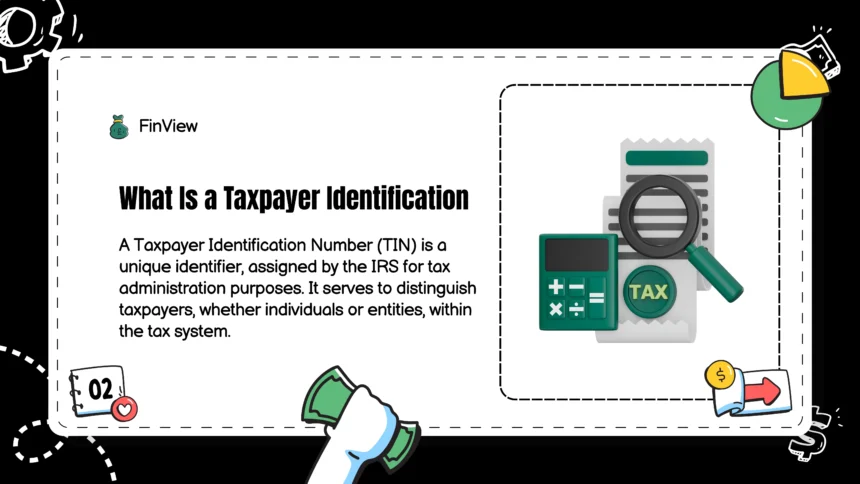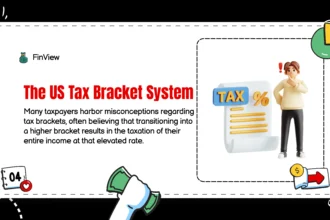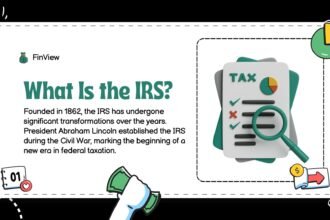Approximately 23 million taxpayers in the United States utilized a Taxpayer Identification Number (TIN) for their tax filings last year. This figure underlines the critical role of TINs, which are assigned by the IRS as unique nine-digit identifiers. Grasping the importance of a taxpayer identification number is imperative for fulfilling one’s tax obligations. The IRS employs this number to oversee numerous tax forms and monitor tax liabilities, encompassing returns and statements. For those interacting with the U.S. tax system, comprehension of one’s TIN is indispensable.
Key Takeaways
- A TIN is a unique nine-digit identifier for tax purposes.
- Millions of taxpayers rely on TINs for filing their taxes.
- The IRS uses TINs to track individual and entity tax obligations.
- Understanding your TIN is vital for managing tax responsibilities.
- TINs are necessary for various tax-related processes and claims.
Definition of a Taxpayer Identification Number
A Taxpayer Identification Number (TIN) is a unique identifier, assigned by the IRS for tax administration purposes. It serves to distinguish taxpayers, whether individuals or entities, within the tax system. The definition of TIN encompasses various forms of taxpayer identification, including Social Security Numbers (SSN), Employer Identification Numbers (EIN), and Individual Taxpayer Identification Numbers (ITIN).
The significance of a TIN transcends mere identification. It is a prerequisite for filing tax returns, opening bank accounts, and applying for certain governmental benefits. Each type of TIN fulfills a specific purpose, contributing to efficient IRS identification and compliance with federal tax laws. A thorough comprehension of your unique taxpayer identifier is essential for navigating the complexities of tax obligations with ease.
Types of Taxpayer Identification Numbers
Grasping the nuances of TINs (Taxpayer Identification Numbers) is imperative for adept tax administration. Each identifier is crafted to fulfill a distinct role in upholding tax compliance standards.
The Social Security Number (SSN) stands as the quintessential TIN. It is predominantly allocated to U.S. nationals and select non-citizens, enabling them to engage in personal tax filings and access various benefits.
Conversely, the Employer Identification Number (EIN) is earmarked for corporate entities, encompassing partnerships and corporations. This number serves as a tax identifier, demarcating the business from individual SSNs.
Individuals ineligible for an SSN can seek an Individual Taxpayer Identification Number (ITIN). Issued by the IRS, it empowers non-resident aliens and others lacking an SSN to fulfill their tax obligations.
Adoptive parents in the U.S. rely on the Adoption Tax Identification Number (ATIN). It guarantees that adoptive parents can claim their adopted child for tax advantages, even before the adoption is finalized.
Lastly, the Preparer Tax Identification Number (PTIN) is obligatory for tax professionals who represent clients. This measure ensures the integrity and transparency of tax preparation services.
Why Is a Taxpayer Identification Number Important?
The significance of a Taxpayer Identification Number (TIN) in the realm of tax obligations is profound. It is indispensable for the submission of tax returns, establishing a direct link with the Internal Revenue Service (IRS). The absence of a TIN impairs the capacity to complete essential forms, potentially leading to significant complications.
Employment of a TIN unlocks access to IRS-provided tax benefits, including deductions and credits. These benefits can substantially diminish your tax liability. Accurate identification through a TIN is imperative for maximizing these advantages during tax return filings.
A TIN functions as a critical identification tool. It streamlines financial transactions, such as securing loans, managing employment records, and accessing government services. For entities, a TIN is often a prerequisite for opening bank accounts or applying for credit, underscoring its vital role in both personal and corporate financial dealings.
In conclusion, the importance of a TIN resides in its fundamental role in tax compliance and facilitating financial operations. Possessing an active TIN ensures the maintenance of precise records, averting issues stemming from incorrect identification.
| Aspect | Details |
|---|---|
| Tax Filing | Required for filing tax returns with the IRS |
| Tax Benefits | Necessary to claim deductions and credits |
| Identification | Acts as a key identification tool for individuals and entities |
| Financial Transactions | Facilitates loans, employment records, and government service access |
| Compliance | Ensures adherence to tax regulations and prevents fraud |
When Is a TIN Required?

A Taxpayer Identification Number (TIN) is indispensable in numerous financial transactions. Familiarity with TIN requirements is imperative for adhering to tax legislation. It is obligatory to furnish your TIN during the submission of tax filings, encompassing annual tax returns, withholding forms, and eligibility for specific tax incentives. This data is critical for the IRS’s efficient processing.
For individuals, the Social Security Number (SSN) typically functions as the TIN for employment verification and tax-related submissions. Businesses, on the other hand, utilize an Employer Identification Number (EIN) as their TIN for tax compliance. Financial institutions also necessitate your TIN in financial documentation, facilitating precise financial identification and record-keeping.
Failure to provide a TIN when required can precipitate delays in tax form processing or incur penalties. It is, then, vital to comprehend the necessity of a TIN for effective tax planning and adherence to regulations.
How to Obtain a TIN
The acquisition of a TIN is contingent upon the specific type required. Familiarity with the application procedures for each variant is essential for a seamless experience.
The SSN, predominantly issued to individuals, necessitates the submission of Form SS-5 to the Social Security Administration. It is imperative to present documentation that confirms identity and citizenship to expedite the application process.
For entities such as businesses and tax-exempt organizations, the procurement of an EIN is indispensable. The acquisition of an EIN can be facilitated through the completion of Form SS-4, ensuring compliance with the requisite formalities for operational viability.
When an individual is ineligible for an SSN, the acquisition of an ITIN becomes imperative. The process entails the submission of IRS Form W-7, accompanied by documentation that substantiates the individual’s circumstances.
For those awaiting adoption, an ATIN is obtainable via Form W-7A. This facilitates the provision of necessary identification for tax purposes during the adoption phase.
Tax preparers must also secure a PTIN. This can be achieved through an online application or by submitting Form W-12, ensuring adherence to IRS mandates.
| Type of TIN | Form Needed | Who Needs It |
|---|---|---|
| SSN | Form SS-5 | Individuals |
| EIN | Form SS-4 | Businesses, Tax-Exempt Organizations |
| ITIN | Form W-7 | Individuals not eligible for SSN |
| ATIN | Form W-7A | Individuals pending adoption |
| PTIN | Form W-12 | Tax preparers |
Protection and Security of Your TIN

The safeguarding of your Taxpayer Identification Number (TIN) is imperative for the preservation of your identity’s integrity. A TIN, being a repository of sensitive information, is a prime target for cybercriminals intent on perpetrating identity theft and financial fraud. These nefarious actors exploit data breaches to gain illicit access to your personal and financial data.
To fortify TIN security, the adoption of stringent data protection protocols is essential. Ensure that documents bearing your TIN are stored in a secure environment, preferably utilizing encryption. Restrict the dissemination of this sensitive data to only those entities and contexts where its disclosure is absolutely necessary. Remain acutely aware of phishing scams, which are designed to deceive individuals into divulging their TIN or other personal information.
Engaging in continuous education regarding emerging threats and adhering to best practices for security is critical in safeguarding your TIN against unauthorized access. It is imperative to recognize that your TIN serves as a cornerstone of your financial identity, and its confidentiality must be zealously guarded to avert any misuse.
Potential Issues with TINs
Several challenges can emerge concerning TINs. Discrepancies in reporting or submission errors are common. If the IRS identifies a mismatch between your reported TIN and personal details, expect delays in tax return processing and refund receipt. Such discrepancies can lead to IRS disputes, complicating your financial affairs.
Loss of a TIN further complicates your tax situation. Rectifying this issue requires submitting detailed documentation for identity verification. Ensuring the correct use of TINs can help circumvent these complications. For further information, refer to this useful resource.
Impact of Identity Theft Involving TINs
Identity theft involving taxpayer identification numbers (TINs) constitutes a grave menace to both individuals and corporations. This type of financial fraud can precipitate severe tax issues for its victims, who may discover their TINs exploited for filing deceitful tax returns or securing loans surreptitiously. The repercussions of TIN fraud extend broadly, entangling the lives of those affected in a labyrinth of rectification efforts for their tax records.
Those victimized by identity theft often encounter substantial consequences. They might encounter IRS notifications regarding unreported income or audits stemming from fraudulent filings. These complications necessitate considerable time and effort to rectify, potentially involving legal consultations to protect one’s rights. The psychological strain is equally profound, as victims grapple with the specter of financial loss and the erosion of their credit and reputation.
It is imperative to diligently monitor your financial statements and tax records to promptly detect unauthorized use of your TIN. Recognizing the warning signs empowers you to take preemptive actions. The IRS offers resources for those affected by identity theft, including a detailed guide that elucidates the recovery process. By remaining informed and vigilant, you can fortify your defenses against the escalating menace of identity theft and TIN fraud.
For in-depth information on reporting identity theft and reclaiming your TIN, visit this IRS guide. Prompt action can effectively curtail the consequences of identity theft.
Conclusion
The significance of a Taxpayer Identification Number (TIN) in the U.S. tax framework cannot be overstated. It serves as a critical tool, ensuring compliance with tax regulations and unlocking access to vital financial services and benefits. This unique identifier is indispensable for both individuals and corporations, streamlining their interactions with the tax system.
Given the rise in identity theft, safeguarding your TIN has become imperative. Proactive measures and adherence to best practices are essential to protect your personal and financial data from unauthorized access. Vigilance is key in the digital age, where the misuse of TINs can have severe consequences.
By diligently following the procedures for obtaining and managing your TIN, you enhance your tax compliance. This approach simplifies your tax obligations, allowing you to fulfill your duties efficiently. It is imperative to prioritize the security of your TIN as you traverse the complexities of the tax landscape.






